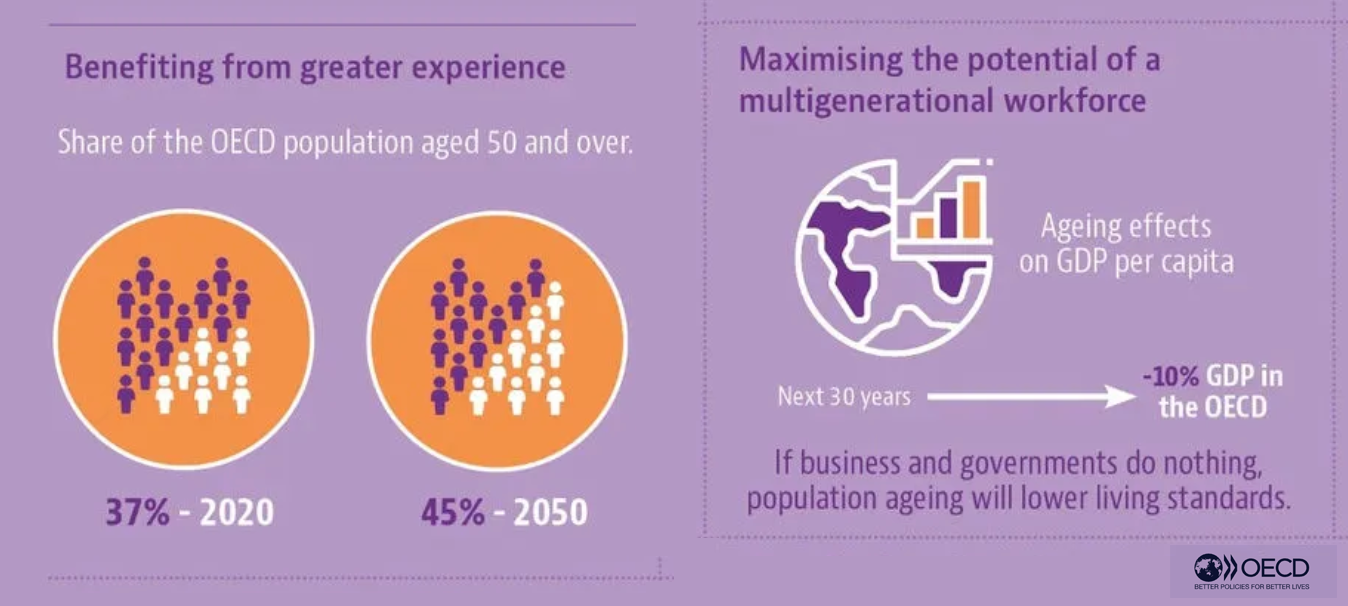We all know someone over 50 who is talented, resourceful, and active but struggles to find a job. Many older workers with the right, useful experience for the roles they seek are often overlooked for job interviews—most likely because of their age and the misconceptions that come with it.
I initially wanted to discuss the toll that not working takes on people. Not just the financial impacts they face now or for their retirement but also how it impacts their sense of purpose. We live in a society and time where people often perceive their value through the work they do. Being denied the opportunity to show what you are capable of can harm your confidence and sense of self-worth.
As I researched this topic to make my article more actionable, I came across an OECD publication titled Promoting an Age-Inclusive Workforce: Living, Learning and Earning Longer. This is how I found my angle.
By 2050, the share of the population aged 50 and older will increase from 37% in 2020 to 45% on average in the OECD. This means that by 2050, more than four in ten individuals in the world’s most advanced economies are likely to be older than 50.
Think Ageism Doesn’t Affect You? Think Again.
Let’s examine how it affects everyone, regardless of age. The social costs of ageism are the first thing that comes to mind. Don’t worry, there are ways to fight these added costs if we are willing to change our mindset.
For my statistically-driven readers, I’ve gathered some predictions. The OECD estimates that:
Based on current demographic trends and abstracting from productivity gains due to technological progress or other factors, real GDP per capita would drop by 10% on average by 2050 in all OECD countries except Colombia and Mexico.
We will all bear the costs of ageism through future increased taxes and fewer services. These social costs hit twice as hard when you start facing ageism yourself. This is why, collectively, we must change how we view older workers sooner rather than later.
On the flip side, there’s also an opportunity if we collectively open our minds and change our views toward the older workforce.
Extending working lives could boost GDP per capita by 19% in 2050 on average in OECD countries if employment rates of older workers everywhere caught up with the best‑performing countries like Iceland and New Zealand.
Let’s be frank: it doesn’t matter if governments raise the retirement age if employers, line managers, and HR departments continue to discriminate based on age.
Without equal access to learning new skills, older workers are left behind. If older workers are shown the door or don’t have chances to shine, they won’t be able to earn longer.
One day, it will be you
Addressing ageism in the workforce is complex. We can’t expect real change to happen without becoming more open-minded about the value and opportunities older workers bring. Do it for you! Because one day, you will be that older worker.

